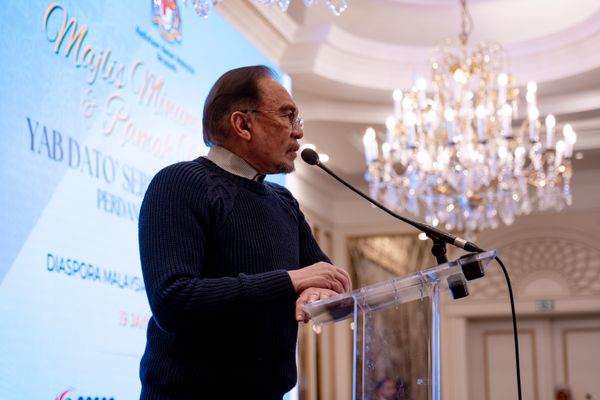KUALA LUMPUR, Feb 4 — The government is expected to announce an increase in the padi purchase floor price next week, along with additional subsidies to mitigate the impact on consumers.
Prime Minister Datuk Seri Anwar Ibrahim said Agriculture and Food Security Minister Datuk Seri Mohamad Sabu would table a ministerial paper to announce and clarify the floor price increase.
“The rise in the floor price will inevitably lead to an increase in rice prices for consumers. Our challenge is to balance this — while the price of padi rises for farmers, we do not want to burden consumers,” he said.
“I have already discussed this with the Finance Ministry to ensure the government will cover the subsidy, preventing an increase in local rice prices for consumers. The government will allocate an additional RM150 million over the next six months to support this effort, and details will be finalised soon,” he said during Ministers’ Question Time at the Dewan Rakyat.
Anwar was replying to a supplementary question from Datuk Seri Ronald Kiandee (PN-Beluran), who had raised the issue of farmers’ demand to raise the padi purchase floor price to RM1,800 per metric tonne.
In 2023, the government raised the floor price to RM1,300 per metric tonne, up from RM1,200 per metric tonne, where it had remained since 2014.
However, on January 27, the Malaysian Padi Farmers Brotherhood Organisation, also known as Pesawah, urged the government to consider increasing the padi floor price from RM1,300 per tonne to RM1,800.
Anwar, who is also finance minister, acknowledged the issue and said he had reviewed the memorandum submitted to the Prime Minister’s Office, in addition to discussing it with the Agriculture and Food Security Ministry.
He also slammed the opposition for attempting to undermine the government’s efforts to assist padi farmers by raising the floor price. Anwar pointed out that during their tenure in government, the opposition had failed to take similar action.
“Don’t deny it, this is the truth. You made noise, but when you were in power, you didn’t raise the floor price of padi. We are the ones who raised it,” he said.
He stressed that the government must strike a balance, acknowledging both the needs of consumers and the livelihoods of padi farmers, particularly as many in the B40 group face financial difficulties.
Responding to a supplementary question from Datuk Seri Hamzah Zainudin (PN-Larut) on the padi floor price of RM1,300 — which he noted was relatively low compared to the increase in diesel prices — Prime Minister Anawr said he would look into the matter.
“If there are farmers struggling with diesel costs, submit their names, and we will reimburse them,” he assured.
In his reply to Ronald’s question on the rising cost of padi production, Anwar said that since the Madani Government took office, several initiatives have been implemented to support padi farmers, including two consecutive years of special assistance in 2023 and 2024.
“Only after the Madani Government came to power were cash contributions for padi farmers increased — by RM228 million in 2023 and by RM600 per year in 2024 for each farmer. This had never been done before,” he said.
Additionally, Anwar highlighted the introduction of the Padi Crop Takaful Scheme with an initial allocation of RM50 million, and that over RM400 million had been allocated to Sabah and Sarawak to offset the higher cost of rice in those states.
Meanwhile, in his reply to Ronald’s original question, Anwar said that the government had approved RM1 billion for the Muda Agricultural Development Authority to implement a programme aimed at increasing padi productivity, set to be launched later this month.
“It can at least meet the current local needs from around 56 per cent to 70 per cent,” he said.
Ronald had asked whether the government plans to review its policy of maintaining a 70:30 ratio between local and imported rice to ensure the sustainability of the padi industry, in line with the National Agrofood Policy 2021-2030.
— Bernama




